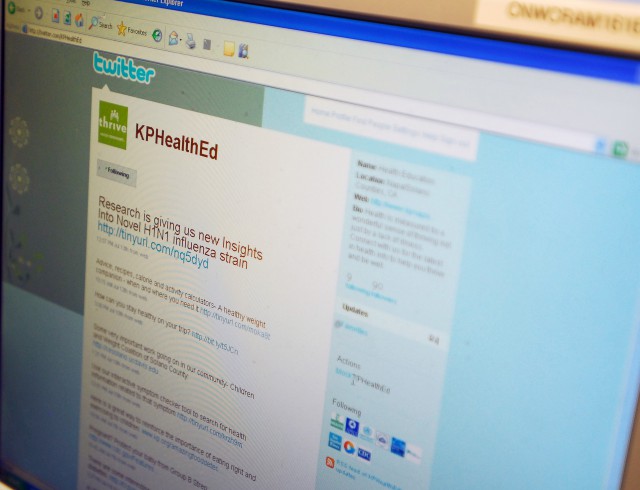
WASHINGTON — Sometime over the last 200 years the
Library of Congress came to be regarded as stuffy. This could be
because its prized holdings include
But under all that marble and granite in the heart
of the nation’s capital beats an alter ego that is hip. How else would
one explain the latest acquisition of the world’s largest library:
every tweet ever twittered since the very first tweet by founder
That’s right. If you ever woke up, grabbed your
phone and twittered your friends that you got hold of some bad shrimp
last night, you may consider your work inducted into the nation’s
oldest cultural institution.
Billions of public musings of 140 characters or less
— with 55 million pouring in daily — will be digitally preserved
alongside the likes of
Deciding that micro-blogging is important in modern American culture, the library asked Twitter to donate its archives.
Now tweets will be maintained for research, the library’s primary mission. Like the one from President
There is the robotic blurt from the Mars Phoenix
Lander when it discovered water on the red planet: “We have ICE!!!!
Yes, ICE, WATER ICE on Mars. woot!!!”
But Twitter’s unique contribution may be the window
it provides into humdrum American life. Where else can behaviorists
find such an exhaustive record of the everyday doings of people you’ve
never heard of?
Consider
now memorialized across the street from the Capitol: “After 15 years of
blissful happiness I would like to ask for your hand in marriage?”
And the first tweet by
Skeptics who dismiss Twitter as a fleeting fad
should take note. Twitter has already recorded some powerful moments,
according to Mashable, a social media news blog.
On
anti-government protest. The university got a lawyer and he was freed.
A
“gbye … gonna kill myself now.” Moore retweeted to hundreds of
thousands of her followers; the woman was located and hospitalized.
Twitter has changed the way the nation hears big
news — in amateur, real-time scoops. The 2008 Chinese earthquake, the
terrorist attack in
The library’s holdings — 745 miles of shelves with
printed material in 470 languages, and now billions of tweets — are
“the world’s most comprehensive record of human creativity and
knowledge,” its website says.
“The Twitter digital archive has extraordinary potential for research into our contemporary way of life,” said
Twitter was equally joyful — more briefly, of course. Said a spokesman: “Twitter is honored to be part of the LOC collection.”
———
(c) 2010, Los Angeles Times.
Visit the Los Angeles Times on the Internet at http://www.latimes.com/
Distributed by McClatchy-Tribune Information Services.














